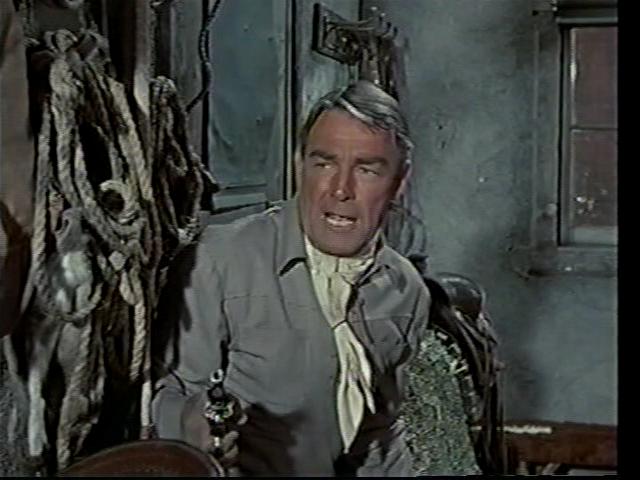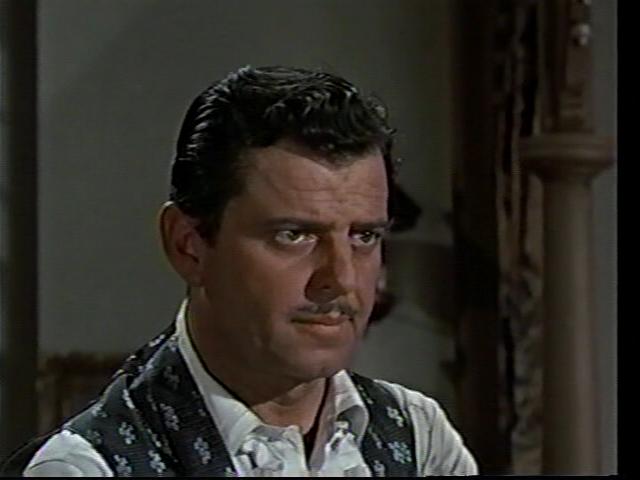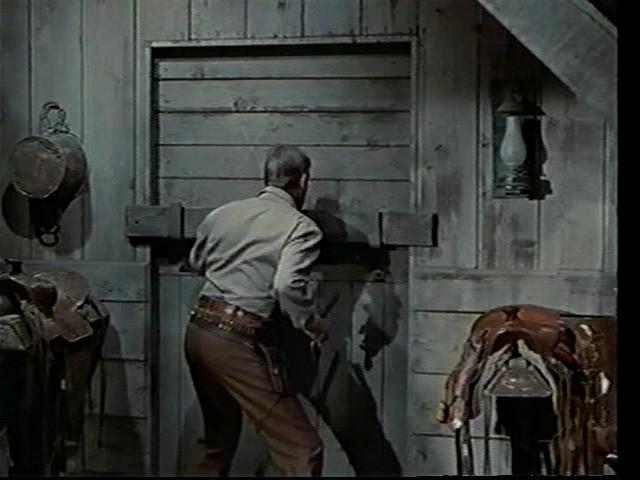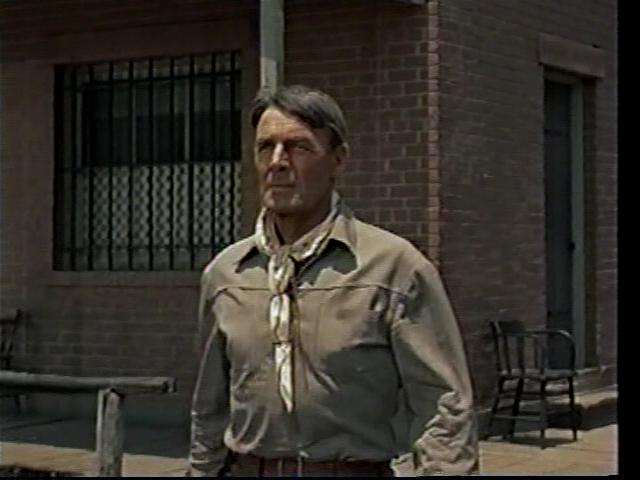|
Genres, Themes, Actors, and Directors:
- Budd Boetticher Films
- Catalysts
- Randolph Scott Films
- Revenge
- Western
Response to Peary’s Review:
This surprisingly tense and effective western about a man (Scott) “obsessed with killing [a] conceited dandy” (John Carroll) who “had an affair with [his] wife prior to her suicide” adds a new twist to the trope of vengeance in the old West. Although the protagonist (Scott) stubbornly refuses to recognize the irrationality of his obsession, his visit serves as a catalyst for the inhabitants of Sundown, who suddenly realize the folly of their subservience to Carroll. As Peary notes, the film is “well directed, offbeat, and psychologically complex,” with an “effective but downbeat script” by Charles Lang, Jr. However, Peary adds he has “a hard time enjoying [the] film because Scott’s character is too crazed by revenge to admire”; like “all Boetticher heroes, he must come to terms with his own flaws, obsessions, and blindness.” Lang’s screenplay moves along at a fast clip, and makes excellent use of a surprise revelation, a stalled wedding, a daylong stand-off, and a “satisfying, unusual ending.” This one remains well worth a viewing.
Redeeming Qualities and Moments:
- Randolph Scott as a man nearly blinded by obsessive vengeance

- John Carroll’s surprisingly nuanced characterization as the womanizing Tate Kimbrough

- Exciting use of claustrophobic locales

- A surprising ending

Must See?
Yes. This remains one of Boetticher’s finest and most unusual westerns.
Categories
Links:
|
One thought on “Decision at Sundown (1957)”
Yes, a must. Another terrifically compact Boetticher flick!
Scott sinks a little deeper with his acting chops – he’s a tougher hombre this time around (cf. ‘Buchanan Rides Alone’), something of an anti-hero, more complex, as he simply cannot comprehend the nature of his loss.
The sly script has us clearly on his side from the get-go. We’re even more with him not only when we see (and know about) Carroll but also his seemingly drippy bride-to-be.
But things change!
Someone sums up Scott: “Maybe you can’t convince a man like him about something he just don’t wanna know about.”
We’ve all known a guy like that. Here we see the type in a very conflicted way.
One very satisfying film!